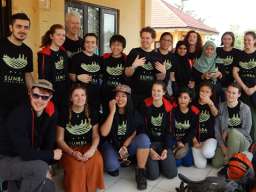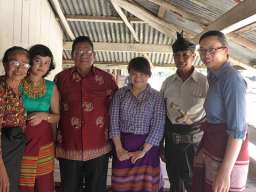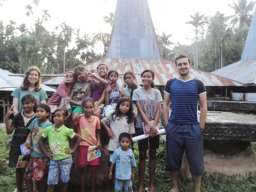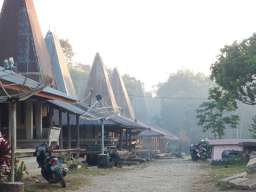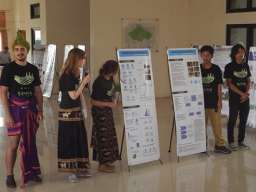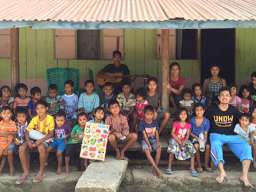ANU students make a difference in Indonesian villages
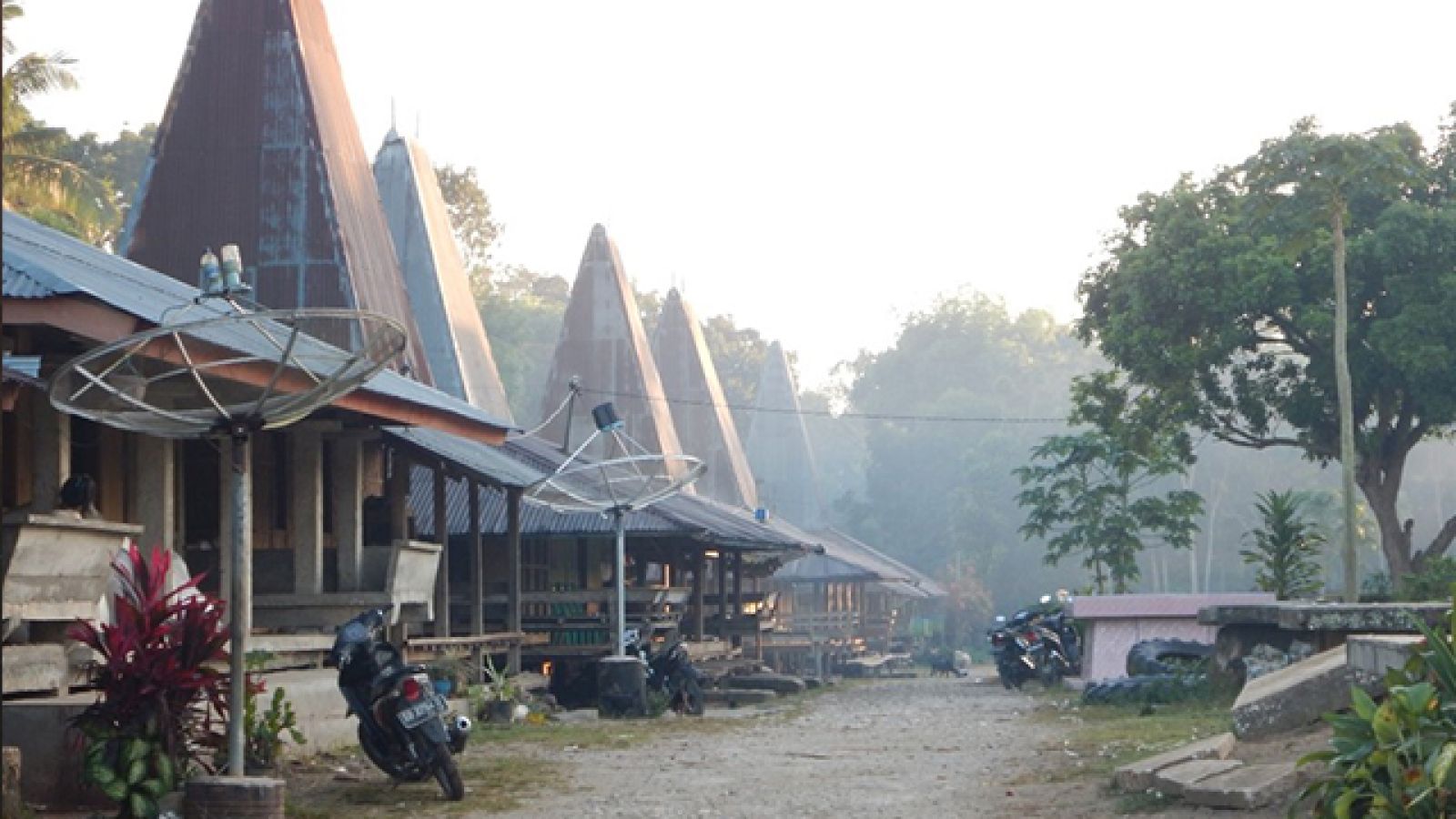
ANU 2016 Indonesian Field School group
Eighteen ANU anthropology students have had an eye-opening experience through the 2016 Indonesian Field School.
For three weeks, they lived and conducted field work on the central island of Sumba, one of the poorest parts of Indonesia.
They formed ten teams with 32 students from Duta Wacana University in Yogyakarta, Indonesia, with each staying in a different village.
Asha Naznin, who is doing her Bachelor of Resources and Environmental Science, explains the different living situations of the teams.
“The groups that stayed with a rich family didn't have that much problem with the toilet and other basic foods,” she says.
“But the groups which stayed with a relatively poor family, they had a lot of struggles.
“Living with a poor family showed students other dimensions of village life and was exciting in that respect.”
Second year Bachelor of Arts (Anthropology) student, Sam Hartley, stayed with one of these relatively poor families in the village of Waikawolu. She and another ANU student and three Indonesian students occupied a room Sam described as “cozy”, with the three female students and three male students respectively sharing a single-sized bed.
Each morning, she and the other village women would walk two to three kilometres to the nearby spring to bathe and wash their clothes.
“That was the place to do informal research. Because lots of the women, they talk all the time,” Sam says.
“It made me feel like part of the community to be part of such a mundane, everyday activity.”
The primary task of the students was to identify a problem faced by their village, and work with the Indonesian students and villagers to come up with a solution.
Asha, who stayed in one of central Sumba’s official tourist villages, looked at its potential for tourism while Sam’s team focused on health awareness and safety.
“We found that robbery was a real problem in the village where we were staying,” Sam says.
She says that the houses are built on stilts and usually three-tiered, with the bottom-most tier housing livestock such as horses, pigs, chickens and goats.
“They keep livestock under the house, and if they’re taken that's a huge part of the community assets.”
The villagers hold very public, traditional bride ceremonies that involve the gifting of cattle and jewellery, Sam adds.
“Families that have inherited this sudden wealth are known to their community, which makes them vulnerable.”
When Sam and her team looked into the issue, they found that the local government head had issued instructions to the village on security. However the village representatives couldn’t read, so weren’t able to implement the instructions.
The team facilitated meetings between villagers and government representatives. One of the solutions that arose was the organising of patrols and determination of punishments and incentives for villagers to participate.
Sam said that police don't respond to incidents unless they’re reported by a wealthy or important family.
“So it's very much down to the people to patrol the area to protect themselves,” she states.
Associate Professor Patrick Guinness, leader of the field school, emphasises the value of bringing people together.
“These problems would break out, but sometimes the local leadership at that hamlet, sub-village level wasn't particularly effective,” he says.
“It was a help to have the students there because the students would organise a meeting, bring people together, and then all these discussions would take place.”
Asha adds: “The recommendation we presented to our local head, many of the village issues he had no idea.
“He became very upset on the final day that he didn’t know anything at all. So in that sense we actually helped the villagers.”
Both ANU and Indonesian students made varied contributions to the problem-solving process. The students from Duta Wacana University served as translators for the Australians, and they brought to bear their backgrounds in disciplines such as architecture, economics, and medicine.
Associate Professor Guinness says the ANU students looked at problems through the prism of their social science background, and thought in terms of social processes.
“Whether it's security or health or whatever […] our approach to it was to see that as a social issue as well and understand the social and cultural dynamics of that particular problem.”
Sam describes the Indonesian Field School as the most challenging university course she’s done, listing the physical conditions and challenges of communicating cross-culturally.
“But it's also the most rewarding,” she says.
“There were so many ideas to think about and put into practice in a real fieldwork environment.”
